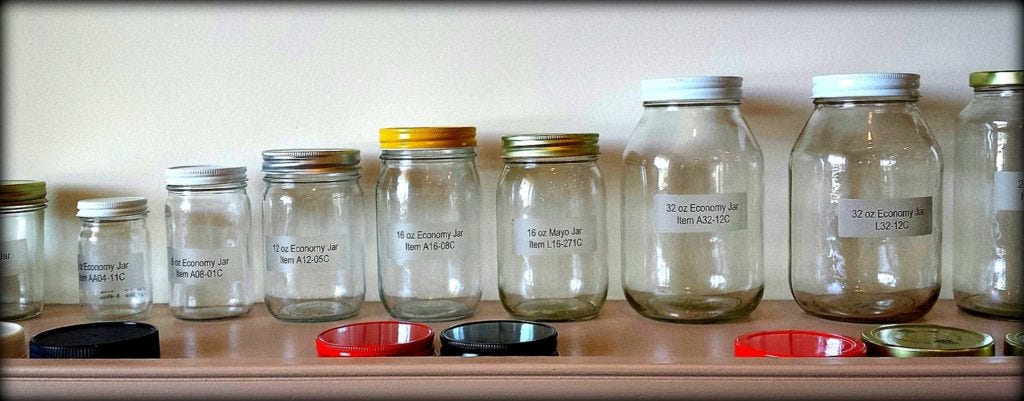
How to Choose a Canning Lid
Canning season is in high gear and we’ve received a lot of questions about selecting the proper lid for your canning jar. We’ve put together a basic guide that will help you determine the proper CT lid (continuous-thread lid) for your canning needs. Continuous thread (CT) is the Mason-style closure mechanism where the jar and lid are both threaded in one continuous bead aro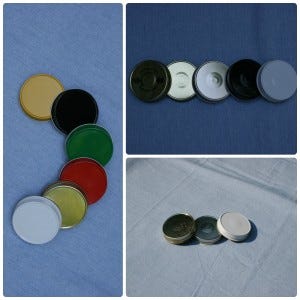 und the entire circumference of the opening; also referred to as “screw-on”. Both the 2-piece and the 1-piece canning lids must have a plastisol liner – a rubbery gasket that is attached to the lid and provides the seal on the finish of the glass jar.
und the entire circumference of the opening; also referred to as “screw-on”. Both the 2-piece and the 1-piece canning lids must have a plastisol liner – a rubbery gasket that is attached to the lid and provides the seal on the finish of the glass jar.
Here are some things you should consider when choosing a lid.
1. What are you preserving?
Find the recommended and approved preserving process for that type of product or combination of products. If you are selling your product, you will want to get in contact with your local/state processing authority or Ag Extension office to see what additional guidelines or requirements are in place. You’ll also want to check out this resource that addresses topics that surround those wanting to sell their products. These recommendations will help to determine what type of process(es) you will want or need to follow. The National Center for Home Food Preservation is a good resource for general home canning guidelines.
2. Which process will you use?
Your process may determine which type of jar and/or lid you use. (See the 3 basic processes below.) If you find that you have a choice of processing options, this may open the door for you to use something other than the traditional 2-piece lid. This may also give you the option to use a jar other than the traditional mason jar.
Once you determine your process, you may then have some other things to consider.
- If you are going to be in & out of your jar often, you may prefer to use a 1-piece lid.
- If you are selling or gifting, many folks leave the bands on so that the lid doesn’t get bumped off in transit. Using a 1-piece lid with a button is a nice option. The button will be an easy indicator that the seal is intact.
- If you are planning to enter your goods in a state-sponsored fair or competition, they will likely require you to use the 2-piece lids.
- If the person opening the jars has arthritis, you may want to consider sticking with the 2-piece. Sometimes, it’s easier on the hands & wrists to pop open a jar than to twist off a 1-piece lid.
For Hot Fill:
Preheat your jars (either in a large water bath or in the oven), and using a small saucepan, preheat your lids in a simmering water for 5 – 10 minutes. Pour HOT contents into the pre-heated jar, cap immediately with a pre-heated lid. As soon as it is capped, the plastisol (already softened in the simmering bath) begins to form a seal around the rim of the jar. As the contents cool, the vacuum is created, the lid becomes concave. Whether or not you actually hear a “pop” will depend on the type of lid, but you should be able to tell visually if the lid has created enough vacuum and a seal. Some folks still feel the need to water bath these jars…which can affect the vacuum and cause them to NOT seal properly. Our CT jars and Lug jars are compatible with this method so your lid choices will depend on the jar that you choose.
- Suggested lid: Standard Plastisol

For Water Bath:
If the product is already hot, the jar should be preheated as well to avoid thermal shock. The standard Plastisol lids are compatible with shorter water bath processing (such as hot-pack jams/jellies). Longer water bath process times usually require the Hi-Heat Plastisol.
It is important to follow the guidelines for your particular food as they can vary greatly.
- Suggested lid: Hi-Heat 1-Piece OR 2-Piece
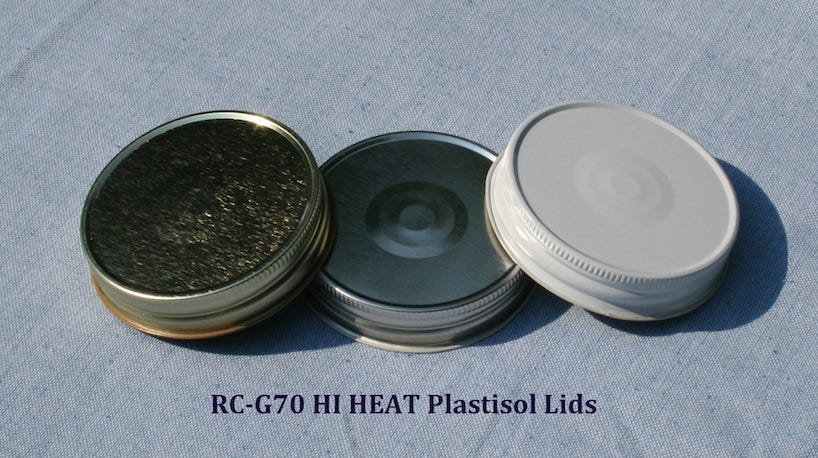
For Pressure Canning:
Whether contents are raw or cooked, the jar should be preheated to avoid thermal shock. The need for preheating of lids is subjective as the heat created in the pressure canner will be sufficient to soften the plastisol and the temperatures in the canner are sufficient for any microorganisms present on the lid. It is important for these jars to vent properly, so be careful to not over-tighten.
- Suggested lid: 2-Piece
What impacts your canning lid sealing rate?
Many variables may impact your sealing rate. Whenever a process is performed by hand, there are variations. Here are a few things to consider as you preserve…whether you are starting out, or trying your hand at a new process, new foods or a different style or brand of lid or jar.
- JAR QUALITY: Are your jar rims clean & smooth, crack-free and food safe?
- CONTENTS: Some foods contain more air than others; especially whole foods. It is important to follow guidelines for minimizing the “extra” air (trapped in foods OR bubbles from filling). Be sure you are heeding any specific guidelines for those particular foods.
- TEMPERATURES: Abide by temperature guidelines (for filling and/or water bathing) and make adjustments for altitude as needed.
- PRE-HEATING: Does your process recommend preheating of jars and/or lids?
- HEADSPACE: Have you allowed enough headspace for the proper expansion, clean venting and sufficient vacuum?
- PROPER LID: Are you using the recommended lid for your process?
- TIGHTNESS of LIDS: Only finger tighten…if your lids are too tight, they will not vent properly! Sometimes you will see the metal buckle (obvious failure) or sometimes the seal is compromised…which you may not see, but still causes seal failure.
Compatibility of jars and closures with product and process is the responsibility of the user. Please consult your process authority and test packaging components for suitability.


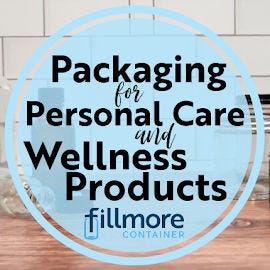

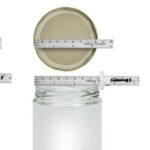

I just used the hi heat one piece lids for the first time. I love the look of them and I think people will find it is easier when I gift my canned goods. I was very hesitant about tightening the lids too much for processing. I only had one jar that didn’t seal, but again, I think it was my fear to make it too tight. (Or it could have been any number of things.) When I ordered mine, I had to get white and I can’t wait until I use them up (I ordered 250 that day- sharing the wealth with other canners) to get some silver. Love these lids!
I see mention of a 2 piece lid but can’t find it on your website – do you sell them? if no, recommend a good source for pallet purchase? thanks
JP,
Yes, we have two piece lids. I am not sure if you need regular mouth or wide mouth. Here’s the product numbers, just type these numbers into the search bar on the top right hand corner of our website.
Regular mouth rings – J00098
Wide mouth rings – J105108
Bulk canning lids regular mouth – J00099
Bulk canning lids wide mouth – J105109
Let us know if you need help finding anything else. Thanks!
I am using Hex9 jars and Twist Off No Button Lids for hot fill canning. Should I change to Button Retort Lids in the future? Should I no longer hot water bath or shorten the time and temp? Thanks.
Hi Carla,
Thanks for your question. It is difficult to answer without knowing the details of your process. We can share some general guidelines that may help, but if you’d like, you could email your processing details to us (csr@fillmorecontainer.com) and we could provide a more complete response. If you are having success with the current process, we wouldn’t recommend a change; especially if the process is within the parameters of your process authority letter (if you’re selling the product). As I am sure you know, it’s important not to make alterations in a process unless they are safe and authorized. If contents of the jar require a certain amount of time in the water bath, that needs to be treated as a determining factor in container choice. We would suggest the Hi-Heat for water baths longer than 10 or 12 minutes. They are only available in the CT style, G70 size, so your jars choices would then be the regular mouth jars. Again, we can probably answer this a bit better if you provide us with the details of your preserving process. You can contact us here csr@fillmorecontainer.com. Thanks for your question!
I recently bought some sauce and syrup jars with the recommended lids from you. The lids are so small there is no button – I hand tightened them and then put them in a water bath as the recipe directed, but I don’t know how to tell if they have sealed.
Hi Kerri,
Thanks for your question. It is hard to tell when using lids without a button and it is even more difficult as they get smaller. However, when you look across the profile of the lids, you should be able to tell a difference between them – the ones that are sealed will be more concave than the unprocessed lids. Sometimes it is helpful to take a straight edge like the edge of a metal icing spatula and hold it across the top of the lid. See an example of this here.
When I hot fill my jars (200+ degrees), I always get some of the button lids, when cooled, where the button has not gone down. What could cause this?
Hi Andy,
Thanks for your question. We’d be able to offer more specific guidance if you could provide the item ID’s that you’re using, as the style and diameter of the closure as well as the process you’re using can all have an impact on sealing. The button not pulling down is a sign that not enough vacuum was produced during the process – which could be caused by the product not being hot enough, or the rims or lids were not clean, or the lids started to seal before waterbathing and were unable to vent properly. (see our post on https://www.fillmorecontainer.com/blog/2014/04/05/water-bath-canning-science-101-proper-venting/) An often overlooked factor is how much air is trapped in the product. The more air trapped, the lower the vacuum you can achieve. Chunkier products trap more air. Generally, each 10 degree (F) drop in temperature should result in 1 unit of mercury in vacuum.
I recently bought some jars and lids from my place of work, they ordered me all one piece lids with no seal button, I have only ever used 2 piece lids so I am nervous about properly using the lids, I can pickles for sale, is it better to seal jars with this type of lid in a boiling water bath or heat lids up and put them straight on the jar with hot fill?
Hi Al,
We’d need more details to properly answer your question. Do you have the order number so that we can see exactly what products you are using? What is your current process that your process letter requires? Because there are a few variables, this may be easier to discuss in person – feel free to give us a call at 1-866-345-5527.
Thanks!
Hello! I have seen some conflicting information and am looking for some help! My fiance and I are making apple butter as our wedding favors. We purchased 6 oz hexagon jars from you (g06-04w) and silver plastisol kids (rL-058). Most recipes say we need to process the jars in a hot water bath after filling jars and applying the lids, but your post says NOT to process in hot water. I’m confused! Help! Thanks so much!
Hi Kristi,
Congrats on your upcoming wedding! You can use the lug lids for your apple butter, assuming that your recipe calls for water bath time that is less than 12 minutes (12 minutes in a water bath canner seems to be the limit when it comes to having a higher rate of success with the regular plastisol). When working with lug lids it is very important to have the lids on properly! They need to be tight enough so that they don’t come off during the jostling of the water bath, but not too tight that it interferes with proper venting. I think you’ll find this post by Marisa McClellan very helpful – https://foodinjars.com/blog/how-to-can-in-hex-jars-with-lug-lids/
Hope this is helpful!
We’d love to see how your favors turn out. Be sure to share a picture with us!
I’m confused as to whether the jars themselves are OK for pressure canning with 2 piece lids. I’m not sure if it’s just certain lids that are not recommended, or if the jars themselves (standard Eco mason) are not suitable.
Hi Roma,
On our site, the jars that are tested and proven to be safe for pressure canning will include that in the description details. The same applies for the lids. As of this reply, the only jars that have been tested & backed by the manufacturer as suitable for pressure canning are the Ball jars and the Orchard Road jars. The lids suitable for pressure canning are the 2-piece from Ball or Orchard Road and the Hi-Heat Single Piece lids. While some people have pressure canned in the smooth-sided G70 jars without problems, they have not been tested and proven for pressure canning, so we are unable to recommend those jars be used in that application.
Thanks for your question.
This post is linked from the FAQ, but I don’t see anything on how to actually measure your jars to find the correct size lid. I’d like to buy lids to reuse commercial jars (I know using them for canning isn’t recommended, but I like the size and shape of the jars for pantry storage of dry items and don’t want the food to have a pickle/ olive smell). Do I measure from the outside of the jar rim or the inside?
Here are some pictorial guidelines on the proper way to measure a jar for a lid. https://www.fillmorecontainer.com/blog/2013/10/03/how-to-measure-jars-and-lids-for-the-perfect-match/
I have the 82 lug lid and straight side 16 oz jar. Can you pressure can with this lug lid? can you use a hot water bath with this lid? or is it for hot fill only?
Hello George,
If you have our L16-11W jars with the suitable lug lids, they are not designed for pressure canning. However, they are suitable for hot fill (some process authorities allow for that, depending on your recipe) and for water bath. Because this lid only requires a partial twist to apply, it’s very important that they are on enough to not work loose during the water bath, but not too tightly applied that the lugs are bent or that they are unable to vent properly. If you’re doing the extended water bath option instead of pressure canning, we would recommend that you use the Hi Heat Plastisol lids – which would require a regular mouth (G70) continuous thread jar.
I was given a box of older canning jars, needing #63 lids. Do you carry any lids that will fit my atlas jars. I hate to recycle them, they are in great shape and perfect size
Hi Leah, We do have 63 mm lids in the CT style, but only with the shorter skirt. That means that the profile of the lid isn’t as deep. If the threads/finish of the jar are the same as the regular mouth canning jar with the exception of the diameter, then I don’t think what we have will work. If you could snap a picture and email it to csr@fillmorecontainer.com we can confirm whether we can help you. 🙂 Even if you can’t re-use them for food though, I’d bet that someone would love to take them off of your hands for some other use before they head to the recycle bin.
Where can I find information on what materials your flat canning lids are made with. For example, are they BPA / BPS / phthalate free?
Thank you
Hi Teresa, If you’re referring to our bulk flat canning lids, they are produced by the same facility that makes the Ball/Jarden lids. My understanding was that they are BPA free, but am waiting on confirmation on that. When we have confirmation on the absence of those components, it should be included in the description of the items. I’ll let you know what I find out.
Could you confirm if your flat canning lids contain BPAs or BPS or Phthalates, or if the are all free of these.
We just got the reply from the manufacturer of the Orchard Road lids. Orchard Road Lids are BPA, BPS, Phthalate and Azodicarbonamide free. Still waiting on confirmation for the bulk lids.
I am making satsuma (mandarin orange) jelly in 8 ounce jars and have always used a 2 piece lid but am looking at the 1 piece option. The jelly is cooked to 220, poured in jars, and processed for 5 minutes in a boiling canner. Will the high heat lid still work? I only have a limited amount of juice available right now and am trying to minimize “non-pops”.
I am using plastisol lined lug lids in a hex jar and I am wondering it I am putting the lids on too tight prior to the water bath and therefore not allowing for proper venting of air in the jar. I am canning jam, leaving 1/4 inch headspace and using a boiling water bath for 10 minutes. After the 10 minute water bath, I wait until the water is “still” before removing the jars. I tend to left the jars by the side, but today I lifted them by the lid, and a large amount of air bubbles were released from the jar as I compressed the lid with the lifter to remove it from the water bath. Should I be removing the jars by slightly compressing the lid while I am removing it from the water bath or should I take care not to do this? The lids seem secure after the water bath. Am I doing something wrong? Advice?
Thank you for reaching out with your question! There are so many factors that go into this process, it’s hard to diagnose these “not in person”, but I’ll try! Sometimes, jars do continue to vent after heat is reduced or even removing them from the heat. THis isn’t a bad thing unless it pushes product into the space between the plastisol and the rim of the jar – which could compromise your seal. It’s good that you’re aware of the importance of not over tightening. You could try backing off just a bit on your twist. If your lifter allows you to safely remove them without grasping the lid, I’d go that route, so that you avoid the possibility of interfering with the seal. You should not have to adjust lids after the processing…it’s more likely that you’d disrupt the sealing process and the vacuum that has begun to happen inside the jar. I hope his helps.
I recently use the X43-SBL lid with 1.5 oz hex jar to make pepper jelly in a hot water bath (for 10 mins). When I ordered the jars and lids I did not see the description and it wasn’t until I went back to the site to order more that I saw a description recommending not to use these lids in a hot water process. The jars have the safely button and they sealed beautifully but now I am worried they are not safe. Should I scrap my jelly and start over?
Hi Jeane, We’re thrilled that they worked for you! And I’m hoping that you see this response before you pitch the product! If they sealed, (and assuming that your recipe is safe) your jelly should be fine! The concern (and thus our recommendation) is because the type of plastisol. If the waterbath process it too long, it can cause the plastisol to blow out resulting in a seal failure. Because the manufacturer isn’t able to pin-point a “safe up to this duration of rolling boil”, we are left with playing it safe in order to avoid customers being disappointed at the end of their labors of preserving. I hope this helps!
I am going to be freezing juice and was wondering if a plastisol lid will work to keep the contents airtight since I won’t have any heat involved and I’ll be starting with already cold juice. I read your other blog about safe glass containers and am planning on using the Orchard Road Wide Mouth Pints for the jar. Would any wide mouth plastisol lined lid work for my purposes? Just hand-tighten it and it seals?
Hi Matt,
Yes, you should be able to use the metal lids, they are not going to seal to the jar though, they will be tight. With freezing you need to allow for expansion or the lid will back off or the glass will break. I encourage you to read our post on https://www.fillmorecontainer.com/blog/2013/06/13/freezing-in-canning-jars-101/, if you haven’t already. The Ball plastic storage lids are a good option as well.
I have 2 gallon jugs with spouts for beverage need replacement lids not sure what size
Hi Linda,
I am so sorry for our delay in responding.
Did you purchase the dispensers from us? If so, sadly we do not have replacement lids. I suggest you read this post to determine the size lid you might need. Call us with any questions 866-FILL-JAR (866-345-5527)
hello, and good day from California, I have a question, im ready to jump to one part lids, I own a jam & jellie company and I currently hot pack then water bath for ten minutes. which one part lid would be best?
Jennifer,
Hello from PA! 🙂 Sorry for our delayed response. Any of the one piece lids that say that they are plastisol are made for a hot-fill process. The high-heat are made for a 15 min. or more water-bath process. You can test the regular plastisol in a short water-bath, but it is a testing process, as the manufacturer, manufacturers them for a hot-fill and not a water-bath. Email or call with any questions – 866-FILL-JAR (866-345-5527) or info@fillmorecontainer.com.
after a huge massive fail on ball lids, its time for lugs. What do you recommend for regular mouth and wide mouth jars and I will need the hi heat ones please as i will be doing both water and pc canning.. I need a cost as well thanks
Hi Kim,
I apologize for our delayed response. The lugs lids are NEVER recommended for pressure canning at all. We do not have a high-heat lug lid either. They are recommended for hot-fill processes, or can be tested for a short water-bath, but it is a testing process, as the manufacturer does not make them for water-bathing. There are not lug “regular mouth and widemouth” lids that fit the ball jars. Ball jars are CT jars, so they are not interchangeable with another style of lid. We do carry one piece regular mouth and widemouth lids that fit the ball lids in a high-heat, but the only ones we can recommend for pressure canning are two piece lids. The costs for all of lids are listed on our website. If you have more specific questions, we encourage you to email us at info@fillmorecontainer.com
When you’re choosing jars and lids for preserving stuff in there really are a lot of factors to keep in mind. As the article points out, one of those factors that you’ll want to remember is the quality of the jar itself. After all, you will not want it to have any cracks or anything like that as those things could effect the preservation process.
Hi Duncan,
Yes, you are correct. Jars should be inspected before you preserve anything in them. Cracks or chips will impact lids sealing properly.
Hi.
I need your purple lids for regular mouth mason jars. Will they fit?
Thanks!
Hi Barbara,
Yes, these lids will work with a regular mouth Mason jar.
Hi,
Will the 70-450 plastisol CT mason jar lids fit regular mason jars?
Thanks!
Hi Barbara,
Yes,the 70-450 CT lids fit regular mouth mason jars.
I am canning Jam and would love to use the 58-2020 Black Button Metal Lug Lid, plastisol. Am I reading correctly that as long as the jars have been heated and the lids heat soaked, that I do not need to water bath them?
Hi Alexa,
They are a hot-fill jar. This means that you fill the product in the jar at, at least 180°. The jar should not need to be heated, and if you are water bathing the lids ahead of time, you want to make sure it is for a very short time. (Any time in a water-bath for the lids, is a testing process, as they are only made for hot-fill or commercial steam capping methods.) You do want to make sure that when you fill, that the product going into the jar is at least the 180°, as often product cools down quicker than we realize. We do always recommend testing any product or packaging that is new for you, before you get into larger batches.
Contact us with any questions. CSR@fillmorecontainer.com
Hi, i have used the normal Plastisol lids for jams, i did water canning for 12 mins then rested for 5 in the water.
The lids concave upon water canning but after the jam had cooled down the concave aspect of lid went down a bit.
Would this mean the jam will not be preserved properly or do the lids after water canning become flat again?
Many Thanks
Hi Louise,
Thanks for your question. I think it’d be best if you give us a call to discuss your question. Please call and ask for Kim or Kent – Thanks! 866-345-5527
What is a split lid and can they be used for pressure canning?
Can I use Mason Jar Split-type Lids Leak Proof and Secure Canning Jar Caps, Metal Flat Sealing Storage Caps with rings to can in a water bath and pressure canner method of canning. It also says these caps are reusable. Does it mean that I can reuse them to can again?
Hello Ruth, It sounds like you are referring to products that were not purchased from Fillmore Container, or ones made and branded by Ball, but perhaps from one of the sites that popped up to take advantage of the shortage this year. We can’t speak to the usability of products we don’t carry. A reputable seller would have the answers to your questions on their product packaging or on their site. Unfortunately, this has been happening too frequently…enough that we actually addressed this in a post to warn consumers about their presence, and how to spot a fraudulent or less than authentic site or seller. Many of these are being sold through platforms like Amazon, which are not taking the time to hold them accountable. I hope that you can get some solid answers from where ever you purchased these.
Hello, I recently purchased some 5 oz wide mouth woozy bottles and metal ct plastisol lids 28 400.
Should I or should I not hot bath the woozy bottles after I put the lid on ?
I am planning on making hot sauces for my wedding and want to ensure I’m processing the bottles in the correct way with this type of lid.
Most folks do not hot water bath these – they are often used for hot fill (put hot product in hot jars, capping immediately with a warmed lid) but it ultimately depends on your recipe. The safety of the recipe needs to drive the process…which will determine which packaging options are viable. Since we are not a process authority, we can’t speak to the safety of recipes or processes.
Good morning. Trying to replace lids for two different size lids. both are 1 gallon pickle jars. if you could help it would be great appreciatedd.
Due to the variety of jars that are and have been in production and used to package pickles, we would recommend checking out our post on How to Measure Jars and Lids for the Perfect Match. This post shows you where and how to measure. Industry measurements are in metrics. https://www.fillmorecontainer.com/blog/2013/10/03/how-to-measure-jars-and-lids-for-the-perfect-match/
I recently started making nut butter and canning is all new to me. I was told that a one piece plastic lid would be most ideal bc of the oil in the butter. Secondly what is the best method to safely can my nut butter?
Hi Karina,
Nut Butters are not usually “canned”, but are often just put into a sealed container. Since we are not a food or processing authority, we can’t speak specifically to the safety of a recipe. “Canning” usually refers to one of the 3 types of preserving processes involving heat and water – in a waterbath canner, pressure canner or steam canner – for a specified amount of time and/or pressure.
I want to pressure can habanero sauce that will be shelf stable til opened. What lid is right for the bbq sauce bottle for this process?
Hi Patricia, Unfortunately, we don’t carry a lid for the sauce bottles that is appropriate for pressure canning. I’m not sure if they even make them. Does your recipe actually require pressure canning?
I am confused. This article from 2013 talks about hot filling jars. I thought this was not considered a recommended method for home canning. Please clarify and reference current recommendations. Thank you.
Hello Mary, We have customers who practice a range of preserving methods and approved processes for their applications. The NCHFP currently only recommends 2-piece lids for home canning. In light of this, we provide resources for both NCHFP-approved processes AND processes that align with the intended use from the manufacturer and those approved by Process Authorities. We do not go out of our way to convince folks to preserve in a way that would make them uncomfortable, and nor are we promoting haphazard preserving…because we know that the science of preserving matters greatly. If you are personally only comfortable with utilizing the 2-piece lids, we highly recommend that you only follow recipes approved by the NCHFP. This does not mean that any/all processes that diverge from those documents are unsafe. Processes and recommendations from foundations tasked primarily with safety are very slow to change. From a commercial/professional vantage point, there are certainly other process which have been approved by Process Authorities for specific recipes and applications (for those preserving products for sale) which (because they have been tested an approved) know to be safe. Here is the direct link to the National Center For Home Food Preservation (NCHFP) https://nchfp.uga.edu/ I hope this helps to clarify. Happy & Safe preserving to you!
I need help with choosing a lid. Im looking for a simple ( non canning needed ) lid for some jars. Its a CT thread and when i measure across it’s 3.5″ or 88.9 mm I just need a simple plastic or metal lid can anyone help me out?
thanks
The closest lid would likely be the 89CT. These can be found at this link: https://www.fillmorecontainer.com/closures.html?fc_lid_size=1506
Depending on how many you need, you may wish to purchase a single lid to test first.